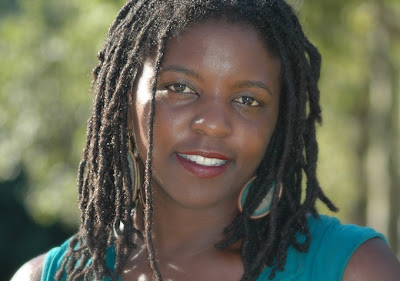The largest-ever analysis of African Americans’ genetics and smoking behaviors has revealed a gene variant correlated with how many cigarettes a day someone smokes. The gene has previously been found to be significant in predicting smoking behavior in individuals of European descent, but the particular marker of importance within the gene varies in those of different ethnicities.
Sean David, MD, DPhil, clinical associate professor of medicine at the Stanford University School of Medicine, is the lead author of the study, which drew on data from more than 32,000 African Americans and 50 institutions around the country, including participants in Stanford’s portion of the Women’s Health Initiative.
“Because of the genetic architecture of certain regions of the genome, we have to look at different ethnic groups separately,” said David, who is also a research physician and director of the translational medicine program at SRI International’s Center for Health Sciences in Menlo Park, Calif. “Unfortunately, most clinical trials and large cross-sectional studies to date had included only participants of European descent.”
The study was published May 22 in Translational Psychiatry. David was a co-leader of the study and collaborated with more than 75 researchers at dozens of organizations throughout the country to collect and analyze the data. Other co-leaders are from SRI International, Memorial Sloan-Kettering Cancer Center in New York, the University of Southern California and the University of California-San Francisco.
African Americans, on average, begin smoking at a later age than those of European descent, and smoke fewer cigarettes per day. However, they have a higher risk of developing lung cancer and are less likely to quit smoking. Such discrepancies, David said, make it especially important to understand how the biology of nicotine receptors and addiction varies between ethnicities.
David teamed up with scientists in charge of 13 previous studies around the country to create the Study of Tobacco in Minority Populations, or STOMP, Genetics Consortium and gather a population large enough to find statistically relevant genes. The researchers collected data on whether each participant had ever been a smoker, the age they began smoking, how many cigarettes per day they smoked and whether they had successfully quit smoking. Each study sequenced the genomes of their own participants, but all used similar methods and performed the same analysis.
In total, 53.7 percent of the study participants had ever smoked, and 44.8 percent of those no longer smoked. Sixty-six percent of the participants were women, and the average age at the time the data was collected ranged from 35 to 73 in the different studies.
What the team discovered when they parsed all the data was one gene marker that was correlated with the number of cigarettes someone smoked per day. The marker is in the gene CHRNA5, which has also been found to be important in smoking behaviors of people of European ancestry. However, the marker is in a different spot of the gene.
“Knowing that this gene is important in different ancestral groups really points to its importance and suggests it as a target for drug discovery and development,” said David.
CHRNA5 encodes a nicotine receptor subunit. Nicotine receptors, which bind the chemicals in cigarettes and transmit signals through the brain in response, are made up of different combinations of five subunits. Previous research by other investigators has shown that inactivating CHRNA5 in mice reduces the inhibitory, aversive effects of nicotine, such as increased heart rate and nervousness. Without these negative effects limiting their nicotine intake, the animals seek more of the chemical than usual. This reaction could explain why certain variants of the gene influence people’s smoking habits.
The team also found other genetic markers that had weaker correlations with smoking behaviors. None were statistically significant in the current study, but David said some approached genome-wide statistical significance, and they could be pursued further in the future.
“More research is still needed in populations of African ancestry,” said David, “so that the same innovations in personalized medicine promised for all those of European ancestry will be available to those of all ethnic backgrounds.”
The Women’s Health Initiative, which played a major role in the new study, was launched in 1991 as the largest study of women in the country and tracked the health of more than 161,000 postmenopausal women over 15 years. Stanford, with 8,208 participants, was one of the largest sites for the WHI study. Others studies included in the STOMP meta-study were the African American GWAS Consortia of Breast and Prostate Cancer, the Candidate Gene Association Resource Consortium, the Cleveland Family Study, the Coronary Artery Risk Development in Young Adults study, the Jackson Heart Study, the Multi-Ethnic Study of Atherosclerosis, the Cardiovascular Health Study, the Healthy Aging in Neighborhoods across the Life Span Study, Health ABC, the Genetic Study of Atherosclerosis Risk, and the Hypertension Genetic Epidemiology Network.
David received funding for the study from the National Institute on Drug Abuse and the National Institute of General Medical Sciences. The Women’s Health Initiative is funded by the National Heart, Lung and Blood Institute.
BY SARAH C.P. WILLIAMS Information about Stanford’s Department of Medicine, which also supported the work, is available at medicine.stanford.edu.
PRINT MEDIA CONTACT Rosanne Spector | Tel (650) 725-5374 manishma@stanford.edu || BROADCAST MEDIA CONTACT M.A. Malone | Tel (650) 723-6912 mamalone@stanford.edu























